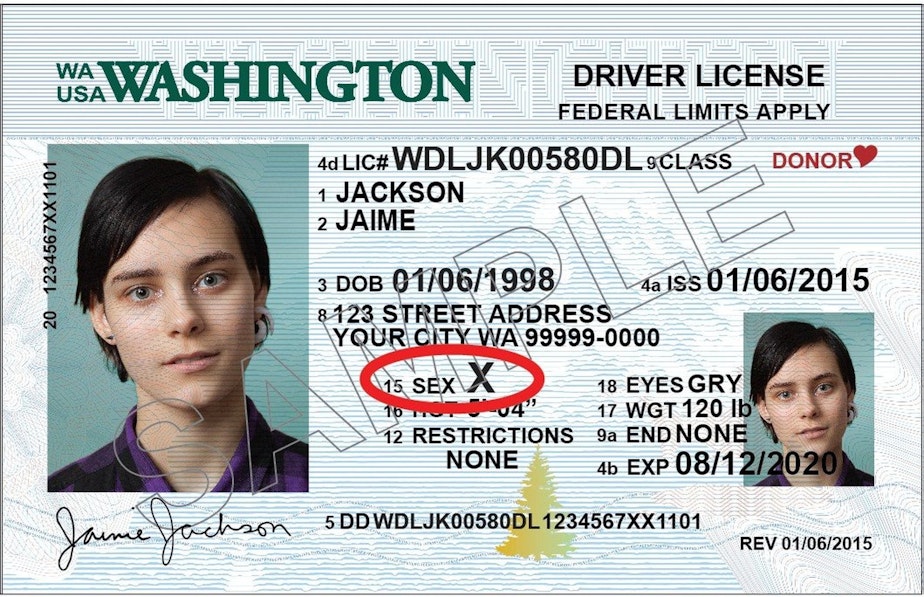X may be a gender option on driver’s licenses soon. But why is gender being tracked at all?

Take a look at your Washington state driver’s license.
Right now, the gender options available to you at the Department of Motor Vehicles are M and F, for male and female.
Starting this fall, you may be able to choose a third option: X.
But why do we have gender on our driver’s licenses in the first place? Dean Spade, associate law professor at Seattle University, says we should challenge that. His book is Normal Life: Administrative Violence, Critical Trans Politics and the Limits of Law.
Do driver's licenses need to list a gender?
We’re used to the state requiring all kinds of identifying documents from us: driver’s licenses, birth certificates, Social Security cards. But each of those were wildly controversial when they were introduced, Spade said.
“People were like, ‘Why are you reducing us to a number?’”
After 9/11, identification and surveillance became more tightly linked, and far more prevalent.
This had consequences for immigrants, and also for trans people. Only 11% of trans people have all their documents in line with their gender; for 68% of trans folks, on the other hand, none of their documents match their gender identity.
Sponsored
“These IDs are not about the states recognizing who we really are,” Spade said. “They’re about survival.”
While expanding categories may be positive, there’s also an argument for removing gender markers altogether.
“We get our identities not from the government regarding us and surveilling us, but from our communities, from knowing who we are because of our loved ones caring for us," Spade said.
"We feel like ourselves in relation for others," he said. "I feel like it’s really important to oppose the notion that this is a matter of human dignity and inclusion to be seen by the government in a surveillance regime.”

